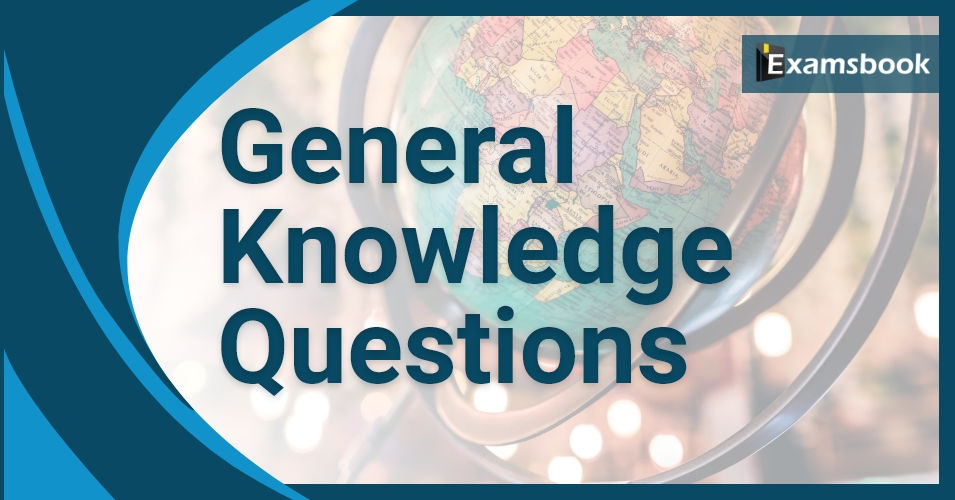General knowledge questions and answers for competitive exams (Part: 2)

How many fundamental rights were there in the beginning-
(A) Six
(B) Seven
(C) Four
(D) Five
Correct Answer : B
Explanation :
Right to property has been amended to a legal right by 44th amendment act 1979. Currently, there are six fundamental rights which are
1. Right to equality
2. Right to freedom
3. Right against exploitation
4. Right to religious freedom
5. Cultural and Educational right for minorities
6. Right to constitutional remedies
In which of the part of the constitution, the fundamental rights are enshrined-
(A) Part 2
(B) Part-1
(C) Part 4
(D) Part 3
Correct Answer : D
Explanation :
The fundamental rights are enshrined in Part 3 of the constitution from Articles 12 to 35.
Under which of the following article,any person can go to supreme court in violation of fundamental rights-
(A) Article32
(B) Article 28
(C) Article29
(D) Article31
Correct Answer : A
Explanation :
Under article 32, any person can go directly to supreme court in matters of violation of fundamental rights.
Which of the followings issues a writ-
(A) Any High Court and Supreme Court
(B) Any Court
(C) District Court
(D) Administrative Tribunal
Correct Answer : A
Explanation :
Supreme court (article 32) and High Courts (article 226) have the right to issue a writ.
Under which of the following writs, a person is restricted to perform any duties for which he does not have the authority-
(A) Mandamus
(B) Quo warranto
(C) Certiorari
(D) Habeas corpus
Correct Answer : B
Explanation :
Quo warranto is a prerogative writ requiring the person to whom it is directed to show what authority they have for exercising some right or power (or “franchise”) they claim to hold.
Which of the following writs is called Bulwark of personal freedom-
(A) Mandamus
(B) Habeas corpus
(C) Quo warranto
(D) Certiorari
Correct Answer : B
Explanation :
Under Article 32, Habeas Corpus is called the bulwark of personal freedom. It can be issued against government and non-government person.
Habeas corpus is a recourse in law whereby a person can report an unlawful detention or imprisonment before a court, usually through a prison official.
Which of the following is the foundation of personal freedom-
(A) Mandamus
(B) Habeas corpus
(C) Quo warranto
(D) Certiorari
Correct Answer : B
Explanation :
It is an order issued by the court to a person who has detained another person,to produce the body of the latter before it.
In which of the following situations, Habeas corpus writ is issued-
(A) Loss of property
(B) Extra tax receipts
(C) Faulty police detention
(D) Violation of freedom of expression
Correct Answer : C
Explanation :
Habeas corpus is a legal order that requires a person who is holding someone in custody to bring the detainee before a court or judge. This writ is typically issued to protect individuals from unlawful detention or imprisonment. Therefore, it is issued in situations where there is a faulty or improper police detention, ensuring that individuals are not held without proper legal justification or due process.
Which of the following writ’s meaning is –“to have the body of”-
(A) Habeas corpus
(B) Mandamus
(C) Quo warranto
(D) Certiorari
Correct Answer : A
Explanation :
"Habeas corpus" is a Latin term that translates to "to have the body of." It refers to a legal order that requires a person who is detaining another individual to bring the detained person before a court or judge. This writ ensures that the detainee's physical liberty is protected, preventing unlawful or arbitrary detention. Habeas corpus is a fundamental right in many legal systems and is essential for safeguarding individual freedoms.
How many writs can be issued by supreme court-
(A) 2
(B) 3
(C) 5
(D) 6
Correct Answer : C
Explanation :
The Supreme Court of India can issue five types of writs under Article 32 of the Indian Constitution for the enforcement of fundamental rights. These writs are habeas corpus, mandamus, prohibition, quo warranto, and certiorari.



